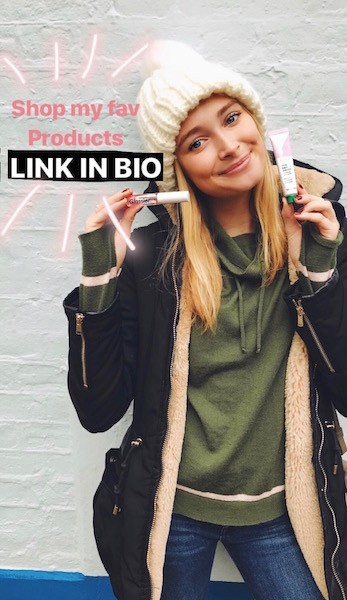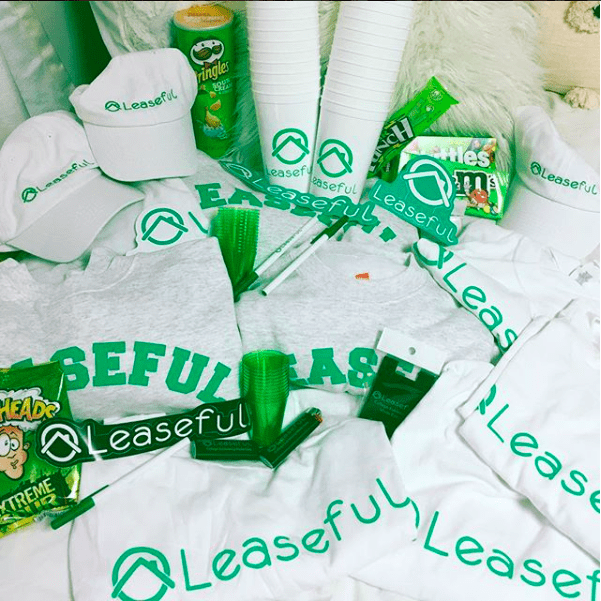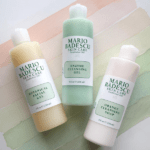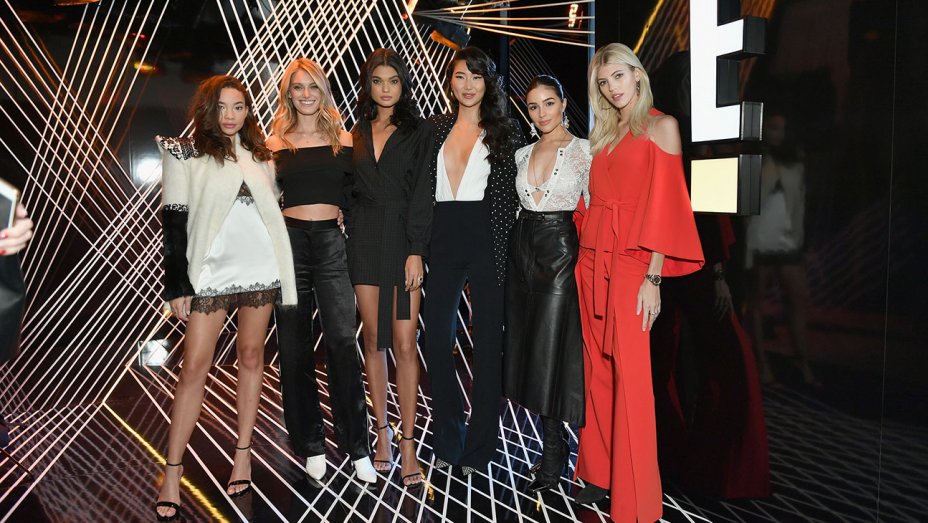You’re used to seeing advertisements when scrolling through your social media feeds, on the side bar when shopping online, and when you’re flipping through the pages of your favorite magazine. But, what if I told you that one of the most common ways you’re being marketed to is through your friends? And I’m not talking about you’re Instagram-famous model friend with 10k followers. I’m talking about your roommate or the girl who sits next to you in your art history class.
Brands have broadened their user base through college-targeted “brand ambassador” programs. Brand ambassadors are people who are paid (in some form) to endorse or promote a company’s products. Especially in a college setting, they use word-of-mouth to market the brand they represent.

Tell me more
Brands look for students who usually align with their target demographic and act as almost a “poster child” for the company. Lilly Sisto is a recent SMU graduate and vice president of marketing at the trendy peer-to-peer subleasing company Leaseful. She says, “I look for someone who is outgoing and not afraid to come up with crazy and creative ideas.” She credits social media for helping the company find their interns.
Although most brands use platforms such as Instagram to find who they believe will represent them best, a majority of ambassadors I spoke to took the initiative and applied online, like they would for any other job. Rachel Tomlinson, an ambassador for Rent The Runway, decided to apply for the position simply because it was for a company she had used and loved. As did Ann Nordin, a Leaseful intern, because she saw the brand as “something new, and different.” She also loved the idea of being one of the first marketing interns at SMU. Glossier representative Elizabeth Kelley was “discovered” the old-fashioned way—while she was shopping at the Glossier pop-up store in Dallas last semester.

What’s in it for me
In the age of digital media, personal branding is more essential than ever. How you portray yourself on social media can greatly impact job opportunities and your career. By promoting a product, just as athletes and celebrities endorse products, a brand ambassador naturally elevates her “digital prestige.” What I mean by that is if you see a person promoting a company and receiving packages of free merchandise, you buy into the notion that this person must be important if a company wants her to promote their brand. “I think being an ambassador helps your personal brand by building reputability on social media. It definitely helps me gain more loyal followers and encourages me to put out better content,” says Kelley.
To some companies, brand ambassadors are more than just promoters and instead are viewed as an integral part of the brand. At Leaseful, for instance, their brand ambassador program is called an intern program. “We feel that all of these students bring an immense amount of value to our company and want to offer them the most opportunity after their internship with us and for their resume,” Sisto says. Cameron Fitz, a brand ambassador for the app Genies, can attest to this. “Prior to the app’s launch, I worked closely with the product developers to give feedback on the functionality and aesthetic.” Being a brand ambassador can even lead to a potential career with the company. It is a way to put your foot in the door and actively show the brand how you would contribute to their company. Sisto says, “We have an amazing company culture at Leaseful and we love sharing that with our interns. We also hope that some of these interns from our program will come work for us one day!”

Show me the $
Don’t think for a second that brand ambassadors promote companies out of the goodness of their heart. Companies compensate their ambassadors in various ways. While some send packages full of free merchandize and offer discount codes, others go for more conventional ways of compensation like giving a salary or commissions. It all depends on the brand’s approach to their program. Rent The Runway, for example, requires its ambassadors to post twice a month on both Instagram and their Instagram story, plan at least one marketing event a month, and have weekly Skype calls with their program director. For all her hard work, Tomlinson receives a free rental each month along with a discount. Leaseful differs in their marketing approach in that they do not require a certain number of events or posts, but expect their interns remain active on social media and on campus.
Let’s Talk Business
Word-of-mouth advertising is when “costumers tell other people how much they like a business, product or service,” according to Entrepreneur magazine. The concept is essential to companies especially in the age where news travels fast and far. “It’s amazing how powerful word of mouth is. Without our intern program, our business couldn’t be where it is today,” says Sisto. Emily Boswell, a regional rep leader for Bumble, agrees. She says that brand ambassadors are not only extremely effective but even to the point of essential in today’s market. Entreprenuer.com suggests that they might just be one of the most credible forms of advertising “because a person puts their reputation on the line every time they make a recommendation.” By using social media platforms like Instagram, Snapchat, and Facebook, brand ambassadors not only reach students at their own university, but also at other schools across the country. Brands are able to be everywhere at once and reach a variety of demographics in addition to their target market. “Most brand ambassadors reflect the intended target demographic for each company, which establishes a strong connection between the early adopters and the early majority that consume or utilize the product,” Fitz says.
Now you may be asking, how would someone who is by no means “insta-famous” be able to help grow a company? The media industry has coined a term for people who may not have a large following, but a loyal one: “micro-bloggers.” Loyalty is huge when it comes to business, and who is more loyal to you than your friends, right? “When someone I know and respect recommends a product, I am way more inclined to buy it rather than an ad I see online,” says Kelley.
More than just a Pretty Face
Brand ambassador programs have changed the game of branding and marketing. By having relatable people (your peers, friends, etc.) be an ambassador for a brand, it humanizes the company and creates a sense of community. It’s no longer about the product itself, but instead about the values and mission of the brand. “Bumble brings young women from all over the world together to form true friendships and bonds with people you might not have gotten the chance to meet otherwise,” says Boswell. “I have experienced this first-hand, and I am so thankful to have met the best friends that Bumble has introduced me to and to constantly make new friendships and grow my network along the way.”
Companies have incorporated a “lifestyle” aspect to their brand because they can’t just sell a product to be successful anymore. Take Glossier with their blog, Into the Gloss, or Genies with their tent at Coachella, or even wearing a Leaseful sticker on your white dress next to your sorority emblem during a Boulevard. Whatever their product may be, companies have an easier time reaching their intended audience and creating a culture through their brand ambassadors.
Perhaps the most important role ambassadors fulfill is sharing company values and culture with consumers, thus making a brand much more than an app, skincare product, or designer dress. As Boswell notes, “Our goal is to promote female empowerment on every campus and encourage young women to ‘make the first move’ in every aspect of life. I originally decided to take this position because I was intrigued by the company’s aspirations, and I hold myself to the same values that Bumble embodies.”







